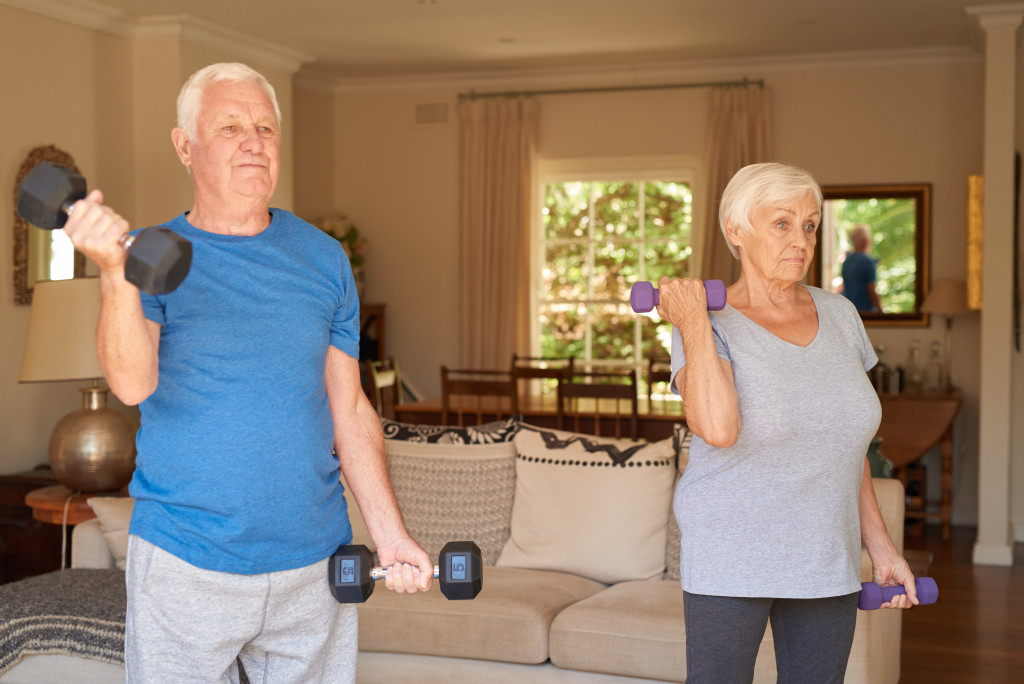Disclaimer: The Lifestyle Elf. This site provides fashion and lifestyle content for informational purposes only.
We tend to move slower and feel a lot more physical pain when we get older. It could be because of health issues, weight problems, or even anxiety about falling and hurting ourselves. Perhaps you’ve concluded that exercise isn’t for you. However, as you get older, maintaining an active lifestyle becomes more crucial than ever. Let’s take a look at why staying active is vital by debunking common myths associated with it first.
Myth: I Might Fall and Get Injured
Truth: It Helps Strengthen Bones, Preventing Fall Injuries
Contrary to popular belief, exercising won’t increase your risk of getting injured from falling. Of course, caution must still be applied, but it helps prevent injuries because of bad falls. Exercise slows down the weakening of bones by increasing strength and endurance and improving balance, lowering the chance of falling.
Myth: It’s Too Late to Begin Now
Truth: The Best Time to Start Is Always Now
It’s never too late to do some exercise and enhance your health! Adults who become physically and mentally active later in life frequently demonstrate more significant gains than their younger counterparts. Plus, if you’ve never exercised or haven’t exercised in a long time, you’re unlikely to develop the same sports injuries that many adult players have. Essentially, because your body isn’t ravaged by years of intense athletic training, you’ll immediately reap benefits if you start now. Start with easy activities and work your way up to a level you enjoy.
Myth: I Will Never Be Athletic
Truth: It Will Help With Your Daily Mobility
Strength and performance will inevitably deteriorate with age due to changes in hormones, metabolism, bone density, and muscle mass. However, this doesn’t mean that you will never be able to gain a sense of mobility or athleticism back. The important thing is to develop age-appropriate exercise goals. Also, keep in mind that living a sedentary lifestyle often results in even worse deterioration of bones and muscles. Thus, the extra movement will help those living in elder care facilities manage their mobility better.

Myth: Exercising Is No Use Because I’m Old Anyway
Truth: It’s Even More Important
Exercise is never useless! Physical activity will help you look and feel younger while also allowing you to stay independent for longer. It also lowers the risk of Alzheimer’s, dementia, heart disease, diabetes, some forms of cancer, high blood pressure, and obesity. Exercise may improve your mood in your older age just as much as it does in your 20s.
Myth: I Have Too Much Physical Pain
Truth: It Will Help Reduce Aches and Pains
Moving about can help you feel better as it helps reduce discomfort by increasing your strength and confidence. Older individuals often find that regular exercise slows down and even mitigates the decrease in strength and durability that usually sets with age. The trick is not to overstress yourself, and as mentioned before, to start at an easy and attainable level and then keep improving.
Other Benefits of Exercising for Geriatrics
Here are a couple more reasons why the elderly should exercise even more.
Boosts Your Immune System: Physical fitness makes you stronger not only externally but also internally. When you’re healthy, your body can better fight germs and viruses, making you more immune to diseases than those who don’t exercise. Being physically active also includes faster recovery from injuries and sickness.
Better Balance Comes from Stronger Bones: Many older people fear osteoporosis, among many other bone-related illnesses, as bone density dramatically suffers. This results in less ability to withstand weight and pressure. This is why falls and trips are significantly more dangerous and often take a longer time to recover from. Regular exercise can help you maintain bone density while strengthening your bones, so they’re more resistant to stress.
Lower Probability of Developing Health Concerns: Dementia, Alzheimer’s, and Parkinson’s are only a few of the age-related degenerative disorders that plague the elderly. So, what does exercise have anything to do with the management of these chronic diseases? Well, exercise keeps our mental faculties sharp, and brain activity significantly helps reduce dementia’s consequences. Exercise can also improve daily motor skills, which can help with Parkinson’s disease symptoms.
It is undeniable that exercise provides a plethora of advantages not just for kids and adults but also for the elderly. Don’t panic if you think exercising for hours on end scares you. To get the most out of your workout, all you need are short, consistent periods of easy exercise. Consistency is vital, especially in exercise.

